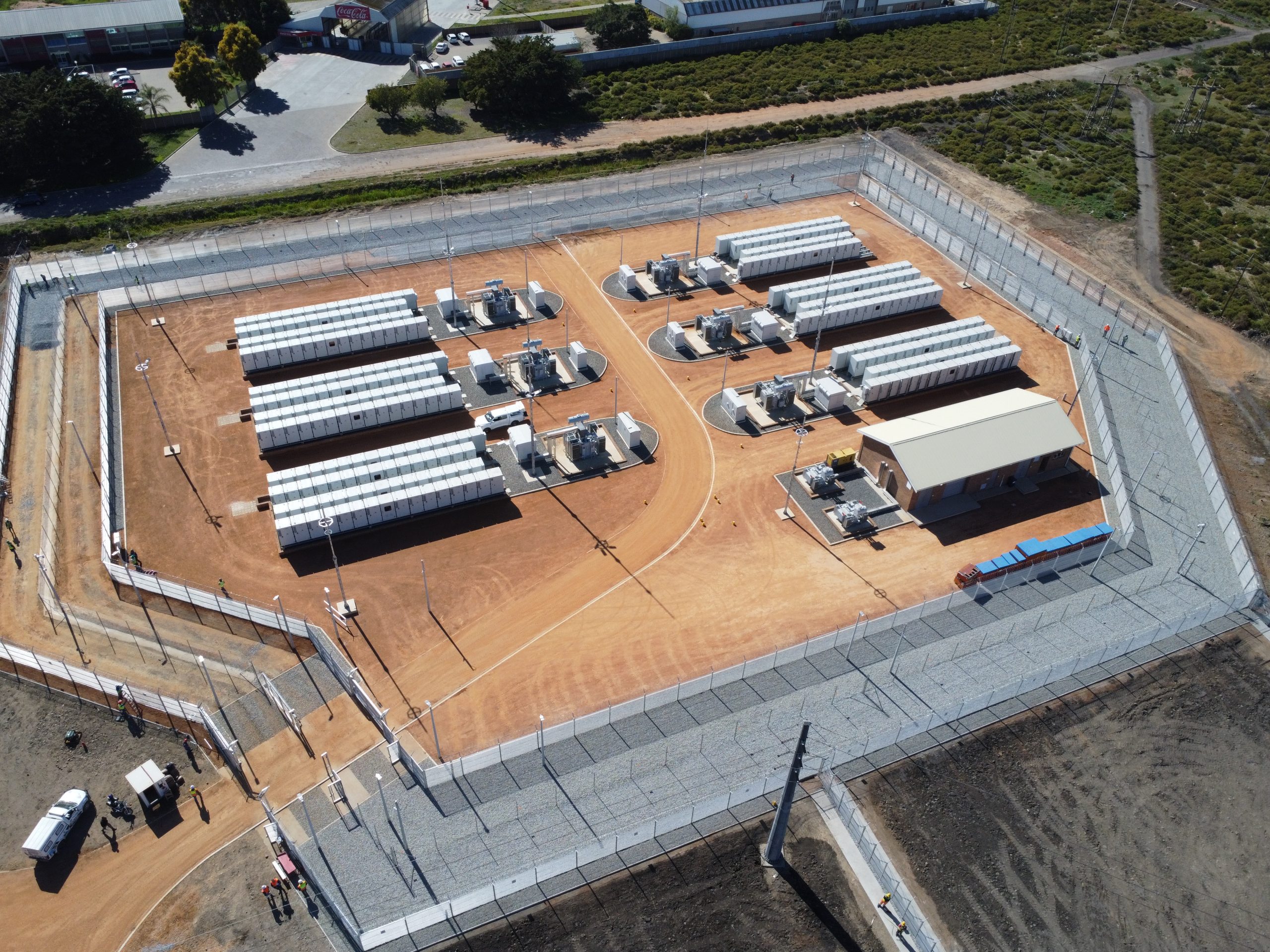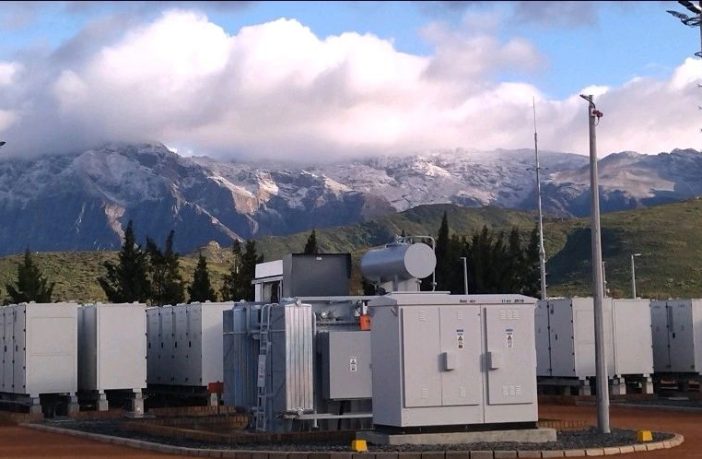- Eskom has offically commissioned the Hex Battery Energy Storage System (BESS) at Worcester in the Western Cape on 27th October 2023 which has 20MW output and 100MWh capacity.
- The project is the first to be completed under Eskom’s flagship BESS project announced in July 2022 to help to alleviate the pressure on the national electricity grid. Read more
- The Hex site can store energy which is enough to supply a town such as Howick for 5 hours.
Eskom has installed the BESS to provide ancillary support in terms of enhanced frequency control of the network, reactive power support and improved quality of supply performance near existing Distributed Generation Renewable Energy plants. The Battery Storage technology may enable the immediate levels of constraint to be addressed and provide continued access to potential customers to these networks.

Eskom unveiled the first of its kind largest Battery Energy Storage System (BESS) project not only in South Africa but in the African continent. Image credit: Eskom
The battery storage technology will also improve the quality of supply and mitigate voltage related concerns on the networks. It can also enable some significant strengthening investments to be deferred, whilst providing a reliable and effective interim solution to the problems faced on the Distribution Networks.
Electricity generation from renewable sources is limited by the intermittency and variability of wind and solar resources, i.e. when wind blows and sun shines. Energy storage allows for the storing of electricity for later use even when the renewable resource is unavailable. The process involves the conversion of electrical energy into another form of energy such as chemical or kinetic energy, store it temporarily and then converted back to electrical energy, therefore giving the utility considerable flexibility and control.
“The rollout of these technologies together with a disciplined execution of our Generation Recovery Plan which started in March 2023, and aimed at achieving energy availability factor of 70%, will give us the most needed megawatts to reduce and ultimately end loadshedding,” Eskom said in a statement.
Author: Bryan Groenendaal















